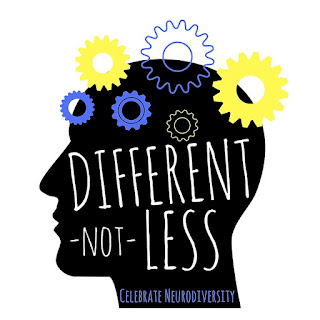Neurodiversity: You Are Still Normal.
In society when we think of diversity, we usually think of race, gender or sexuality. But what about neurodiversity?
According to psychologist Devon MacEachron, neurodiversity is a concept which suggests that neurological differences should be respected and celebrated.
The term Neurodiversity was first used by austrian sociologist, Judy Singer, in her honours thesis in 1998. The term was later made popular by journalist Harvey Blume in an issue of The Atlantic. Originally, people on the autism spectrum used the term Neurodiversity, to describe themselves positively and show others that they don’t need ‘curing’ or ‘fixing’. Afterwhich other disabilities started referring to themselves as neurodiverse; this included; dyslexia, dyspraxic and Attention Deficit Hyperactivity Disorder or ADHD.
Around 1 in 7 people are neurodiverse, globally this comes to 10% of adults being dyslexic, 5% dyspraxic, 4% have ADHD and 2% are Autistic.
Although many people with disabilities are neurodiverse, neurodiversity is not the same as having a disability. However, like having a disability, people who present neurodivergent features may need adjustments at school or work. This could include; sound-cancelling headphones, assistive technologies or flexible working hours.
So what are the characteristics of neurodiversity? While a neurotypical person (a term used to describe people not on the autism spectrum or neurodivergent) may be able to interact with others, tolerate crowds, deal with extreme temperatures and adapt to change. People who are neurodiverse exhibit certain characteristics such as low social interaction or the inability to hold a conversation, fixation on routines or difficulties maintaining eye contact with others.
Many of the characteristics of neurodiversity could be seen as negatives and make someone question whether they are ‘normal’. Advocates for Neurodiversity believe there is too much focus on the impairments instead of focusing on the positive elements of being neurodiverse.
Keri Wiginton gave these examples on positive elements of neurodiversity; people with ADHD have high levels of courage and empathy; dyslexics can perceive visual information better then others while those with autism pay closer attention to complex details and often have great memories.
There seems to be a lot of negativity surrounding those who are neurodiverse when there shouldn't be. In society there is a lot of focus on being normal, when in reality there is no such thing as being normal. In 2019 journalist Howard Timberlake investigated if there is such a thing as a normal brain after being diagnosed with ADHD; to no surprise he found out there is no such thing as a normal brain and that none of us are ‘ normal’.
Whether you are neurodiverse or neurotypical, everyone is equal and has their own unique qualities. None of us are normal, we should love and celebrate who we are without feeling bad or guilty for being different to each other.
Information from
Written by Megan Hurl Instagram



Comments
Post a Comment